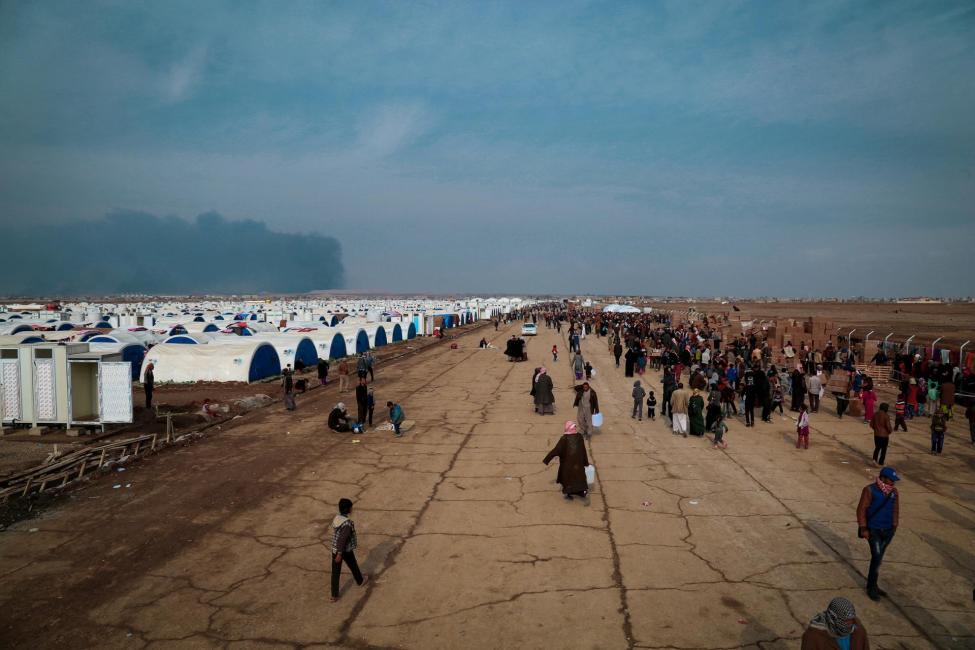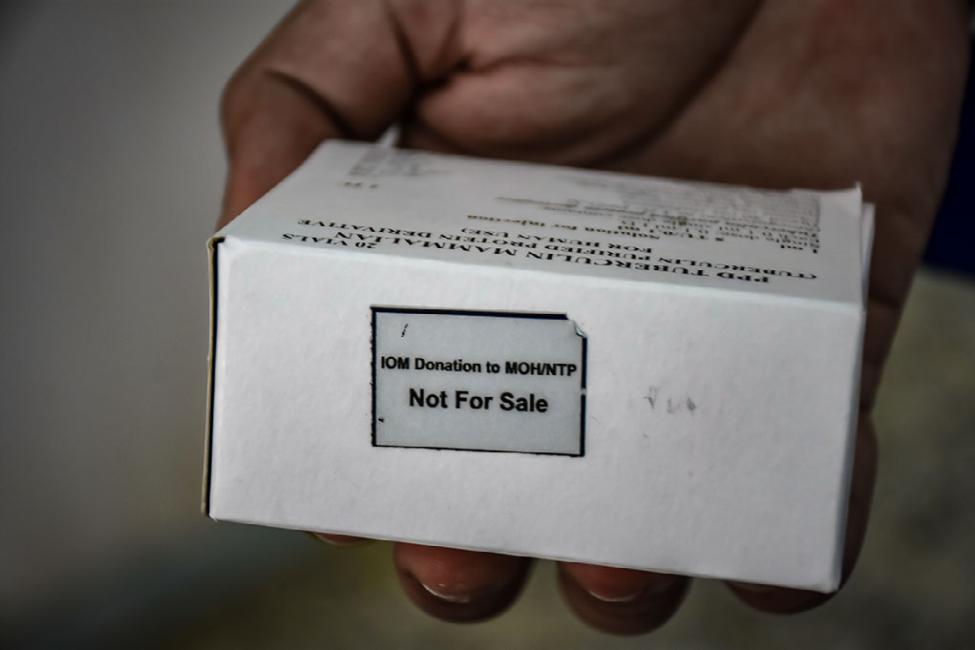-
Who We Are
WHO WE AREThe International Organization for Migration (IOM) is part of the United Nations System as the leading inter-governmental organization promoting since 1951 humane and orderly migration for the benefit of all, with 175 member states and a presence in over 100 countries. IOM has had a presence in Iraq since 2003.
About
About
IOM Global
IOM Global
-
Our Work
Our WorkAs the leading inter-governmental organization promoting since 1951 humane and orderly migration, IOM plays a key role to support the achievement of the 2030 Agenda through different areas of intervention that connect both humanitarian assistance and sustainable development. Across Iraq, IOM provides a comprehensive response to the humanitarian needs of migrants, internally displaced persons, returnees and host communities.
Cross-cutting (Global)
Cross-cutting (Global)
- Data and Resources
- Take Action
- 2030 Agenda
Tuberculosis (TB) continues to be the top infectious killer worldwide, claiming over 4,500 lives a day. In Iraq, since the mid-1990s, years of war and sanctions have contributed to the resurgence of TB. In 2014, when ISIL took control of large swathes of land in Iraq and subsequent military operations to retake areas have heavily damaged the government’s health infrastructure, further deteriorating the situation.
Millions of Iraqis have been displaced, many living in poor conditions with limited access to health services, resulting in a rise in the number of TB cases in Iraq.
With approximately 8,000 new TB cases every year, Iraq is now one of the most TB-affected countries in the Middle East and North Africa (MENA) region. IOM has been supporting the Iraqi NTP in combatting TB in close coordination with WHO, and funding from the Global Fund.
Iraq's Ministry of Health has 19 NTP centers across the country. IOM’s focus is on strengthening the role of the Iraqi NTP to fight TB and reduce the burden of TB on the health system. IOM supports the procurement of TB medications, laboratory supplies, training for NTP staff, and medical equipment. IOM’s 14 mobile medical teams (MMT), which support the TB response, operate in 13 governorates that have been affected by conflict and displacement.
“In 2014, due to ISIL occupation of areas in Iraq, we had no access to areas controlled by ISIL, even after liberation between 2014 and 2017, diagnosis of TB cases in those areas was zero. With IOM support we were able to reach those areas to identify cases and treat them,” said Dr. Samer, Head of the Iraq’s NTP.
IOM mobile medical teams conduct TB awareness sessions and screening of presumptive cases in settlements hosting displaced and Syrian refugees as well as other hard to reach areas. People suspected of having TB and sputum specimens are referred and transported to the NTP centers for further investigation and diagnostic confirmation.
If confirmed TB positive, Directly Observed Treatment (DOT) workers, recruited by IOM from the communities and health centers, support the TB patients with high protein food packages and monitor their treatment.
Wadyan, 25, from Diyala, was separated from her children when she was infected with TB in 2016. IOM mobile teams transported her to the NTP center in Baghdad for tests.
“When I see my three children by my side, I forget about my sickness. I am so glad that I was able to return home,” she said. “Now I feel much better. The treatment is going well with the follow up and support from the doctors.”
“IOM efforts to support the NTP, especially providing medication for multidrug-resistant tuberculosis (MDR TB) and the necessary diagnosis equipment was paramount to our activities to combat TB because the MDR TB treatment is difficult and expensive, but thanks to IOM this treatment was made possible,” said Dr. Samer.
IOM DOT workers monitor the MDR TB cases and transport them on a monthly basis to the NTP centers for follow up and laboratory tests to make sure the patients are completing their treatment course.
Regular TB cases are monitored at home for two months during which DOT workers provide food packages to the patients to strengthen their immune system as they take the drugs. After the two months, the patients are transported to the NTP centers for investigation and tests. If the patients show signs of improvement, they will continue the treatment course until they are fully cured, if not, the doctors at the NTP will decide if the patient requires another treatment course, or replacement of the drugs.
“Our aim is to eliminate TB by 95% in 2030, in line with WHO’s End-TB strategy. Since 2017, we have been running a comprehensive programme with IOM to fight TB with a focus on poor, and remote communities that have been affected by displacement and conflict; our treatment success rate across Iraq has been 93%,” Dr. Samer added.
“For the safety of the Iraqi population, TB needs to be curbed to prevent new infections. In cooperation with NTP, WHO and partners, we are trying to eliminate TB in Iraq” said Dr. Nedal Odeh, IOM Iraq Emergency Health Response Officer.












